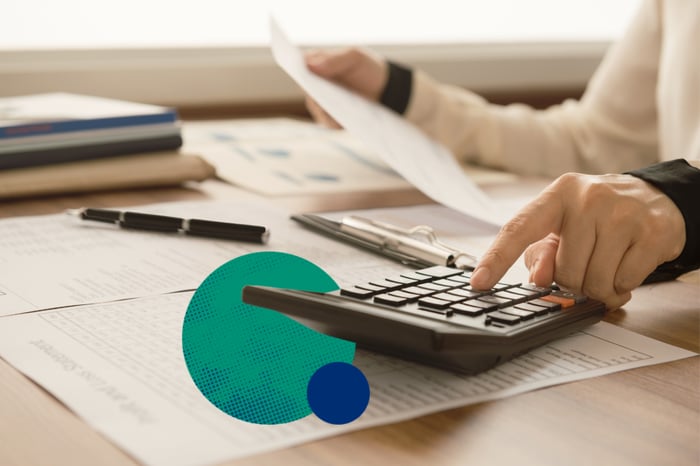Accountants do much more than balance books. They also handle financial records; track income, expenses, and tax liabilities; and may be involved in project planning, auditing, and financial decision-making. Some specialize in tax preparation and planning.
Does this sound like your kind of career path? Read on to learn the essential steps to become an accountant.
5 Accounting Specializations
When you decide to become an accountant, the first thing to do is to begin the necessary coursework to establish a baseline understanding of key accounting principles. After you have established a solid foundation, you can begin thinking about which specialization and industry you want to pursue. Accounting professionals are needed in almost every industry, making it a great career for anyone who loves numbers and wants to work in a specific industry, such as healthcare or technology.
Most accountants work in private offices or as part of a corporate team, while government agencies employ others at the local, state, or federal level. Some travel from one company to another throughout the year to examine financial records and provide objective guidance to clients locally or across a geographic region.
If you want to become an accountant, it’s important to figure out where your interests lie and what you may want to specialize in. Here are just some of the accounting career paths you might consider.
Keep in mind that the salaries listed below were current as of this writing and that salaries will vary by location and according to your education level, work experience, and certifications.
1. Tax Accounting
Tax accountants are experts in getting people’s taxes in order. They make sure their clients follow all the tax rules, find ways to save them money on taxes, and give them advice on how to plan their taxes strategically. On average, tax accountants make about $82,406 per year. They usually work at tax firms or for businesses directly.
2. Government Finance
Government finance professionals handle public funds, review spending charges, and help figure out budgets. They work at all levels of government: federal, state, and local. The average salary for a government finance accountant is around $65,812 per year. These accountants play a significant role in making sure that government agencies are open about their finances and held accountable for what they do.
3. Managerial Accounting
Managerial accountants do internal accounting for businesses. They analyze financial data to help businesses make smart money moves. They also put together reports, handle budgets, and advise on money plans. On average, they make around $65,812 a year. Managerial accountants can work for big or small companies or even for the government.
4. Bookkeeping
Bookkeepers keep accurate financial records, make sure vendors get paid and clients pay on time, and prepare financial reports. They usually earn around $55,893 per year and are often found in the financial or HR departments of different organizations, ensuring that daily financial activities go smoothly.
5. Personal Financing
Personal finance accountants help individuals manage their financial affairs, including budgeting, tax planning, and investment advice. The average salary for a personal finance accountant is about $54,749 per year. They often work in banks, financial institutions, or as independent advisors, helping clients achieve their financial goals.
How to Become an Accountant
For those who love numbers and helping people, becoming an accountant can be a rewarding career choice. Note that not all accountants are qualified as Certified Public Accountants (CPAs), who generally make more money. We’ll discuss that further down.
Earn Your Bachelor's Degree
The first step in becoming an accountant is earning a bachelor’s degree in accounting. This foundational degree equips you with the baseline knowledge and skills you’ll need for various accounting roles.
It is also possible to obtain a degree in a related field, such as finance or auditing, and still pursue a career in accounting, as many accounting job postings accept these qualifications. Most bachelor's degrees typically require 120 course credit hours and take an average of four years to complete.
Some of the most common classes an accounting major will have to take as an undergrad include:
- Accounting I
- Accounting II
- Auditing
- Business Policies
- Business Ethics
- Statistics
- Taxation
Some schools offer a five-year program for accounting majors that allows you to earn the additional 30 post-graduate course hours required to take the CPA Exam, which we’ll talk about in more detail below.
Choose a Specialty
As discussed above, there are different specialties within the field of accounting. Your undergrad years are an excellent time to start considering which one you’d like to pursue so you can focus your studies and internship on that specific path.
Get Professional Experience
Future accountants need to gain real-world experience in accounting. It’s usually a good idea to start interning while earning your bachelor’s degree. Internships allow you to build your professional skills, expand your industry network, boost your resume, and may help you get accounting jobs in the future.
Upon graduation, most people who have a bachelor’s in accounting can get an entry-level job. For those wishing to pursue a CPA, two years of real-world work experience is necessary in order to qualify for the CPA Exam.
Optional: Earn Your Master's Degree
A master’s degree isn’t required to become an accountant, but it’s more common among professional accountants than not. Many employers will only hire those with a master’s degree in accounting or an accounting specialty, like auditing or taxation. For those who plan to sit for the CPA Exam, at least 30 hours of post-graduate credits are necessary to qualify.
Optional: Take the CPA Exam
The CPA Exam is a comprehensive, multi-section test. It’s not mandatory for all accounting jobs, but it does show your commitment to the practice of accounting and may open up higher-paying positions and opportunities. Note that you can’t call yourself a CPA without passing this rigorous exam.
How Long Does It Take to Become an Accountant?
Becoming an accountant can take as little as four years to finish your bachelor’s degree. However, for many, especially those who wish to earn their CPA, it could take longer, as you need post-graduate credit hours and work experience, which could take another several years to complete.
What Else Do I Need to Become an Accountant?
Accountants do more than crunch numbers. There are “soft skills” that can help you not just succeed as an accountant but thrive in this line of work. They include:
- Communication
- Strong work ethic
- Organization
- Computer literacy
- Analytical skills
- Critical thinking
- Attention to detail
Start Your Accounting Path With StraighterLine
While StraighterLine doesn’t offer degrees, we do offer an accounting bundle that can introduce you to basic accounting concepts and help you earn credits toward your bachelor’s degree. This bundle is a fantastic way to learn what it’s like to work in accounting.












